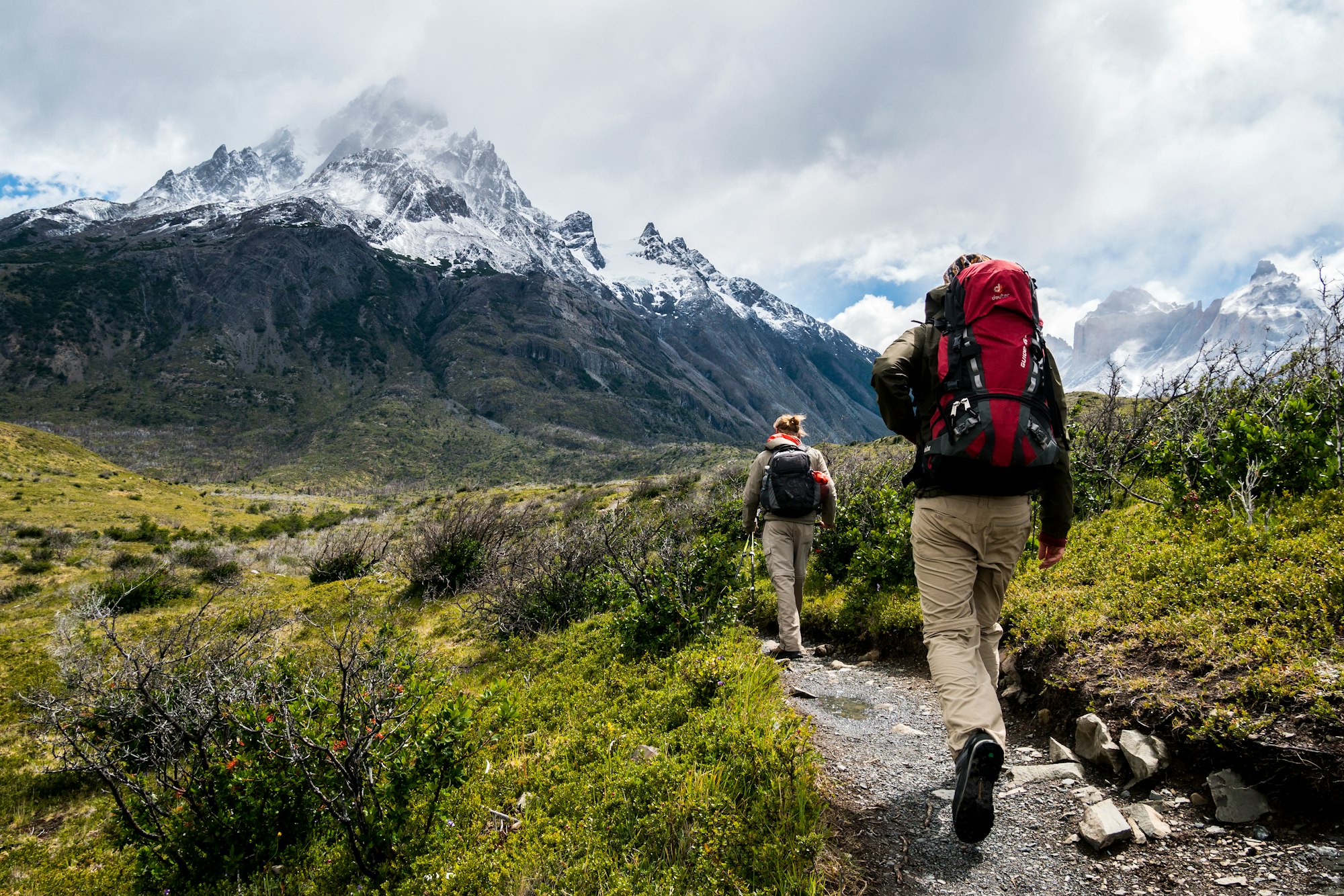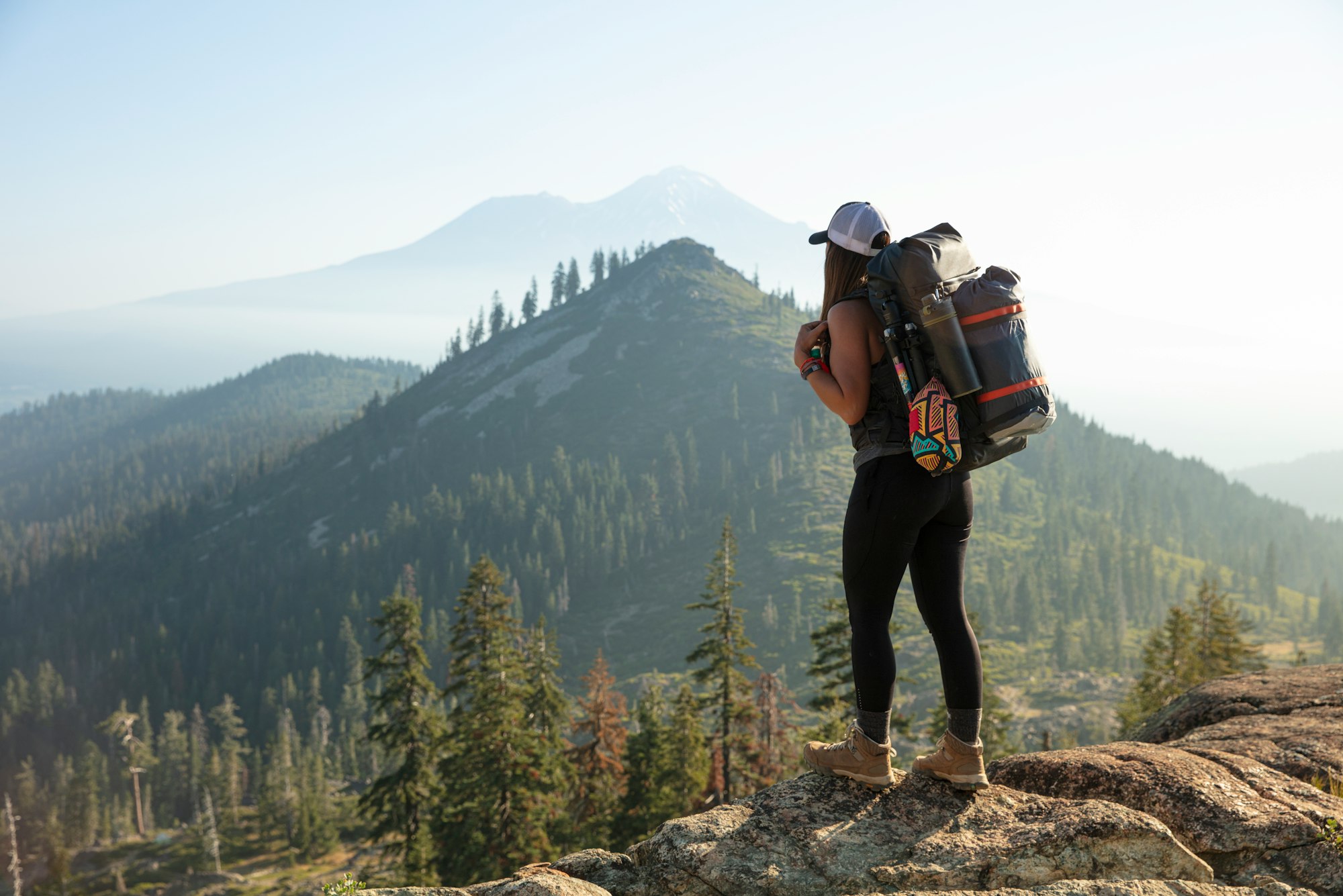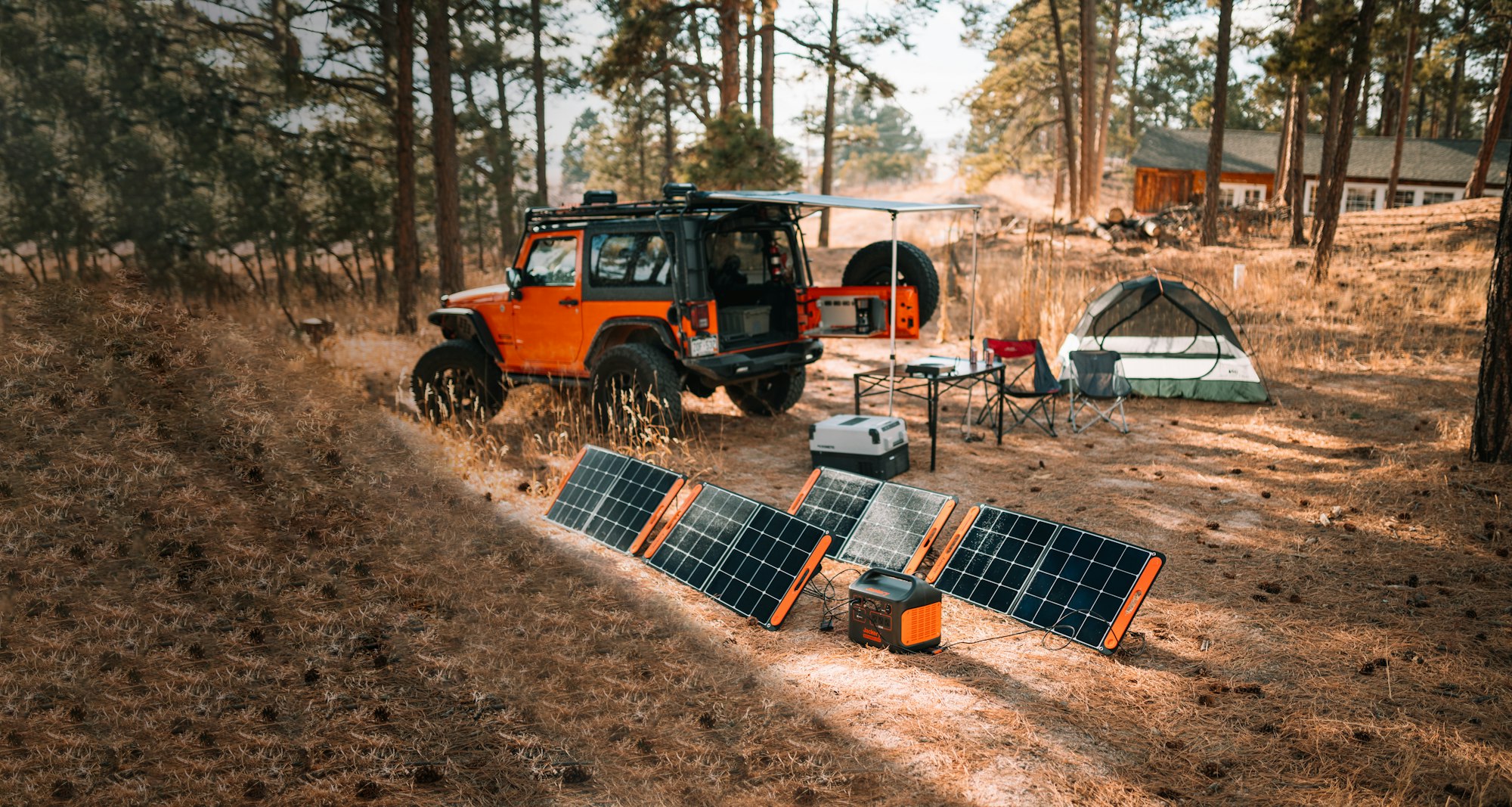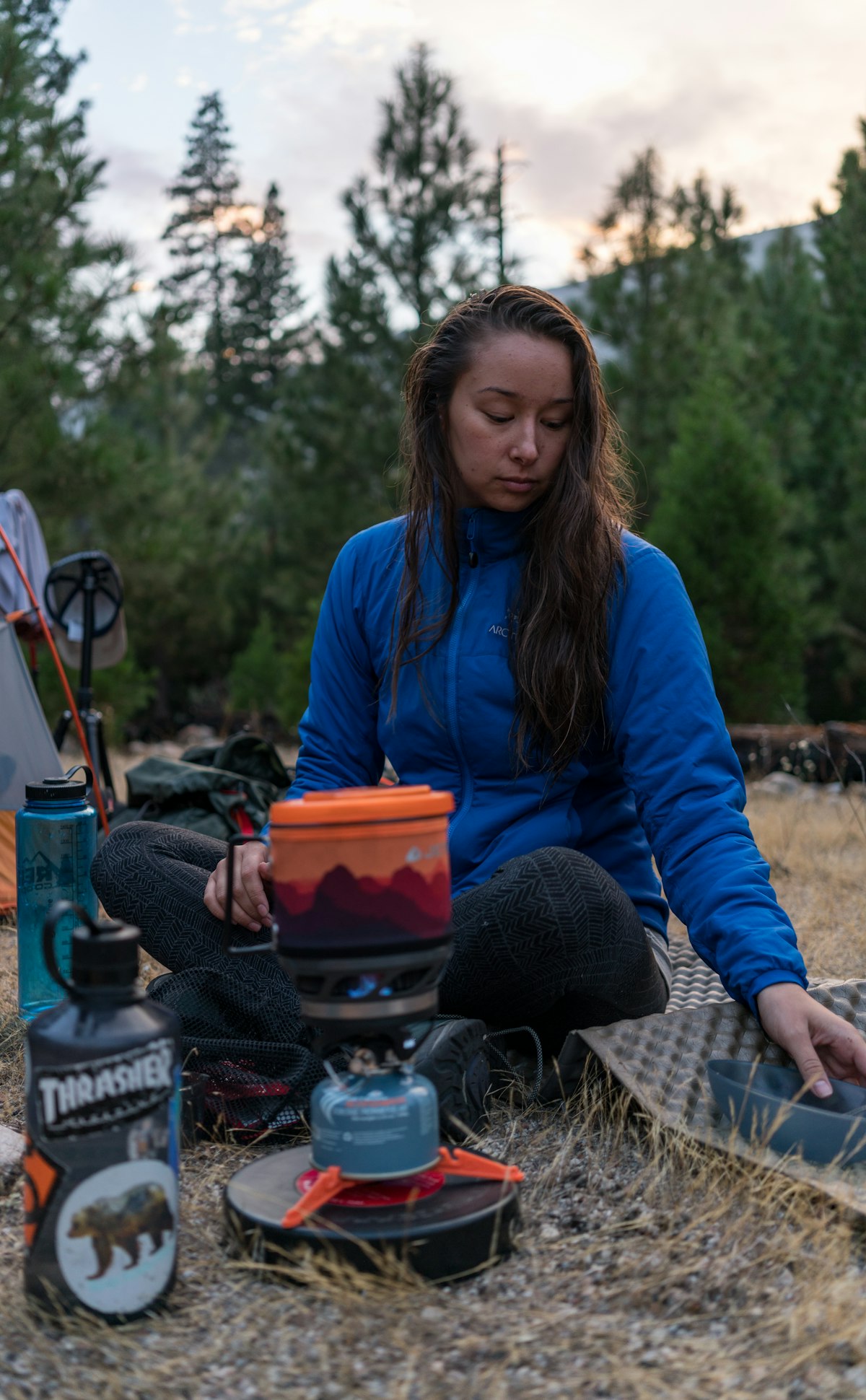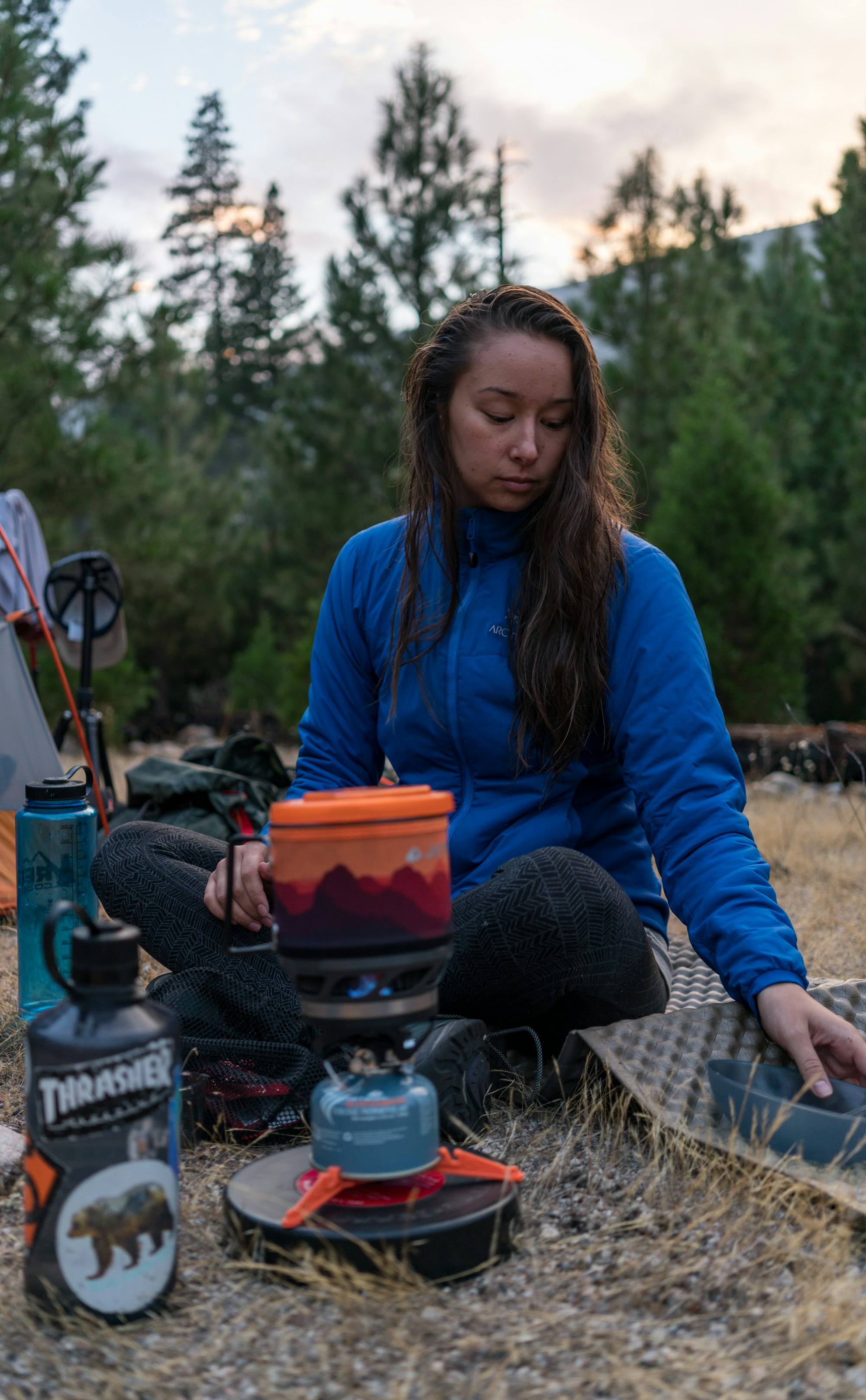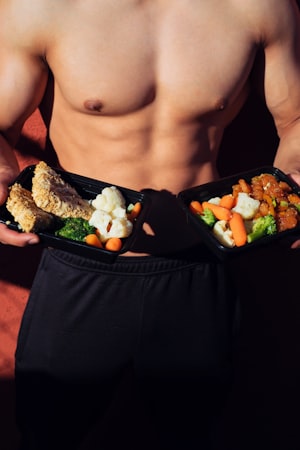Content Summary
Hiking and backpacking can be exhilarating, challenging experiences that help you connect with nature and push your physical limits. But, to embark on a multi-day trek and stay healthy and energized, you need to have the proper food.
Eating the right foods can boost your energy, keep you full and focused, and help your muscles recover. In this blog post, we’ll talk about packing the right foods for a week of hiking or backpacking.
Nuts and Seeds: Nutrient-Dense and High Energy
Nuts and seeds are a great source of healthy fats and energy. You can carry them easily, and they will give you a boost when you need them. Foods like almonds, walnuts, chia, and pumpkin seeds are high in calories, protein, and healthy fats. They can be a quick snack or taken with you on the trail. They are also very nutrient-dense, which means they contain a lot of vitamins and minerals your body needs.
Dehydrated Foods: Protein and Carbohydrates
Dehydrated foods like jerky, tuna packets, and dried fruits are excellent sources of protein and carbs. They’re lightweight, easy to pack, and don’t require refrigeration. They are great for breakfast or snacks as they give stable energy throughout the day. Dehydrated foods can satisfy hunger between meals and give you sustained energy on long hikes.
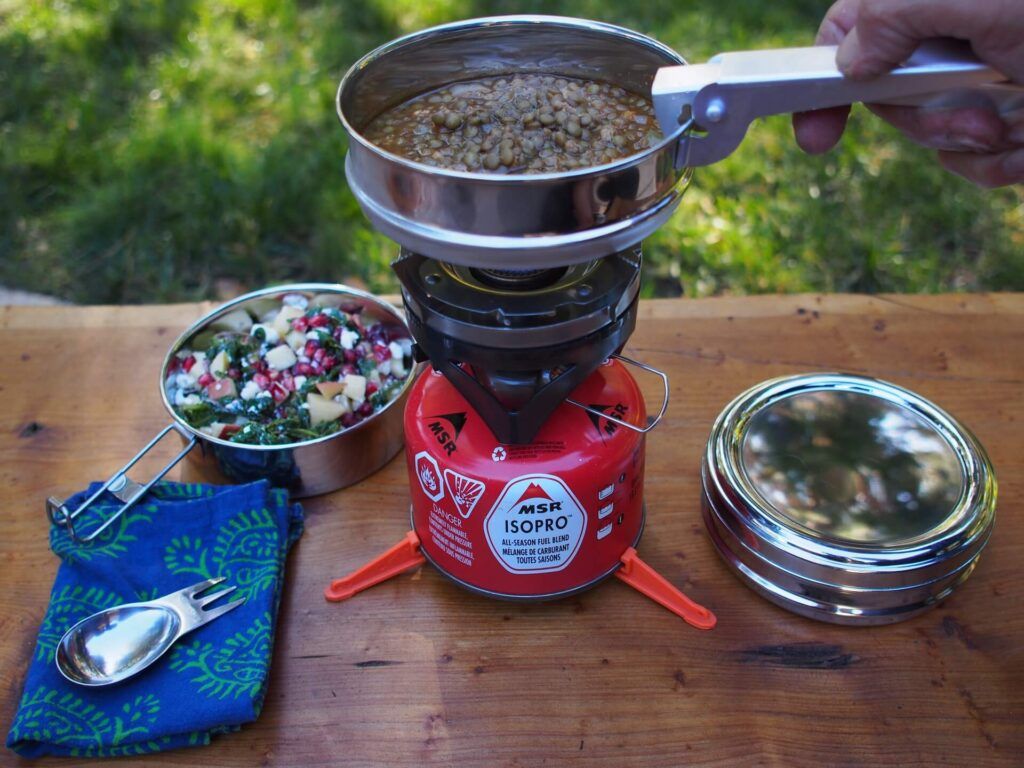
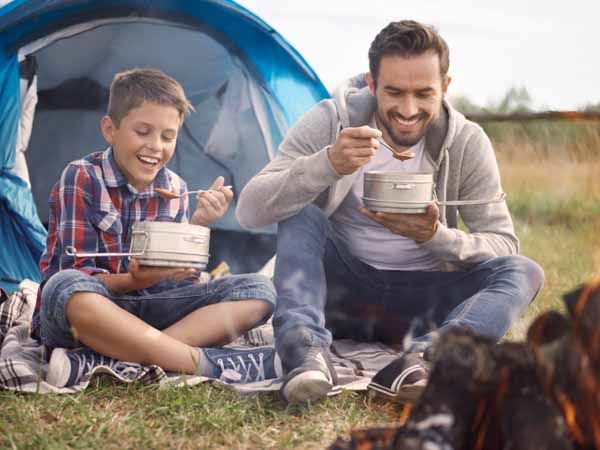
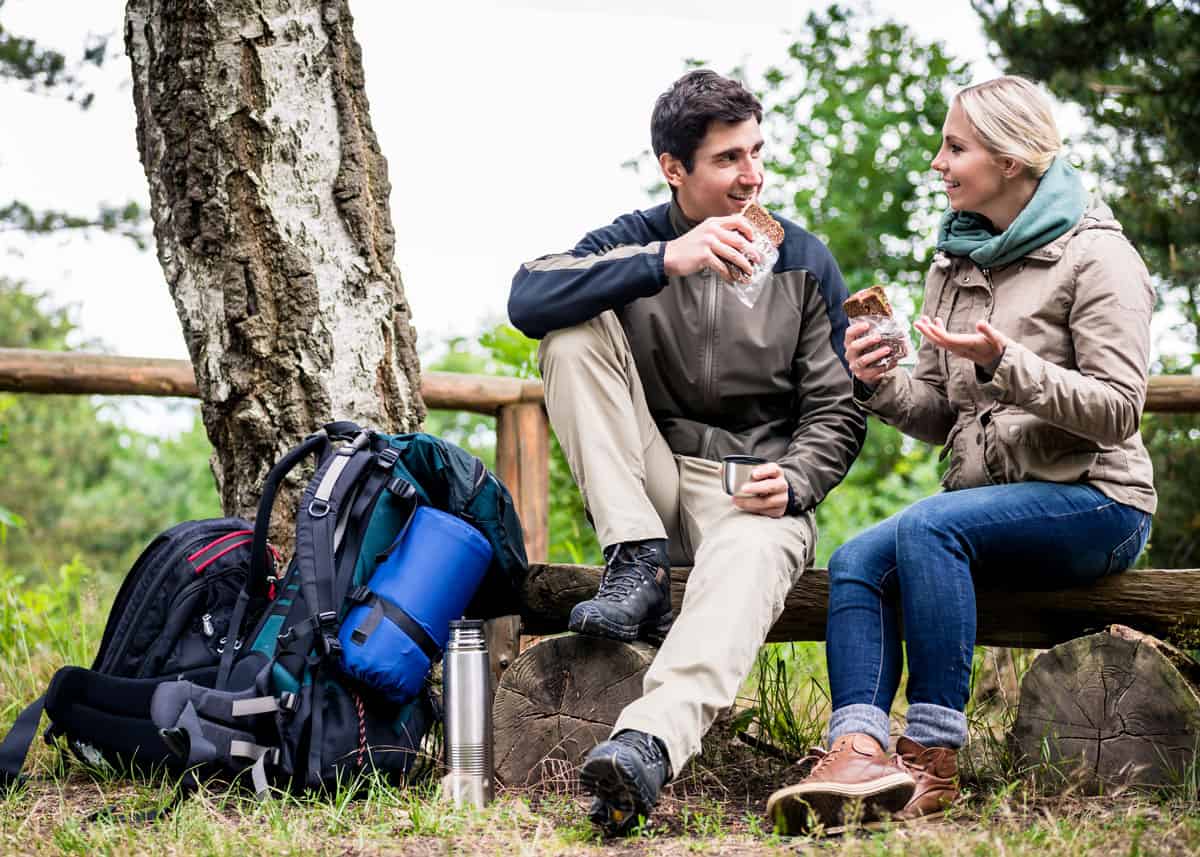
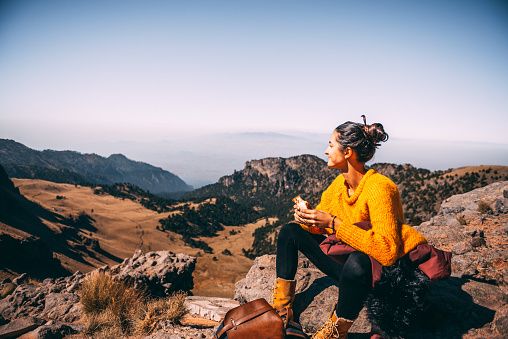

Instant Oatmeal: Sustained Energy and Easy to Prepare
Instant oatmeal is an excellent source of whole-grain carbs, which provide sustained energy for your body during long hikes. It’s easy to make and requires minimal preparation. You can add different jams, dried fruits, or nuts on top for extra energy and flavor. Instant oatmeal is perfect for breakfast, a quick snack, or a mid-day meal.
Whole-Grain Crackers and Nut Butter: Carbs, Protein, and Fats
Whole-grain crackers are a great source of carbs, and they provide sustained energy that can keep you full for longer periods. You can pair them with nut butter or cheese, which is an excellent source of protein and healthy fats. Whole-grain crackers and nut butter is a satisfying snack that provides the necessary macronutrients for fueling your body.
Fresh Fruits and Vegetables: Nutrient-Dense and Filling
Fresh fruits and vegetables, such as apples, carrots, and cucumbers, are excellent for backpacking. They are nutrient-dense and provide a healthy dose of vitamins, minerals, and fiber. Fresh fruits and vegetables are also filling, so they can help you stay full between meals. They are lightweight and easy to pack, which means you can take them with you on the trail.
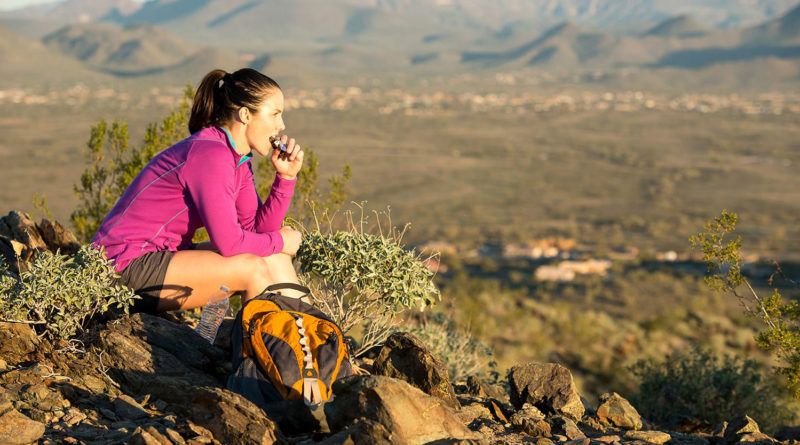
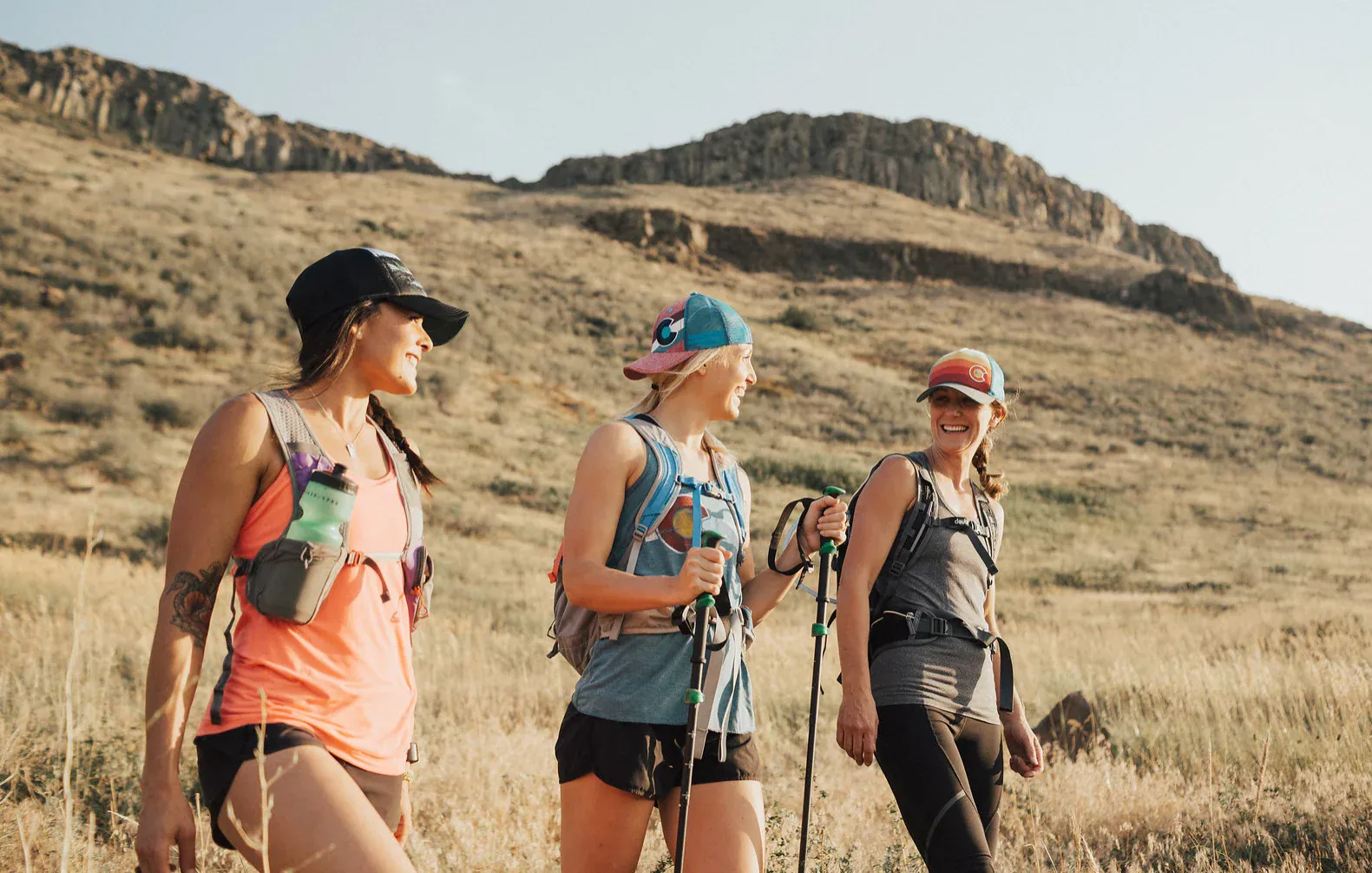
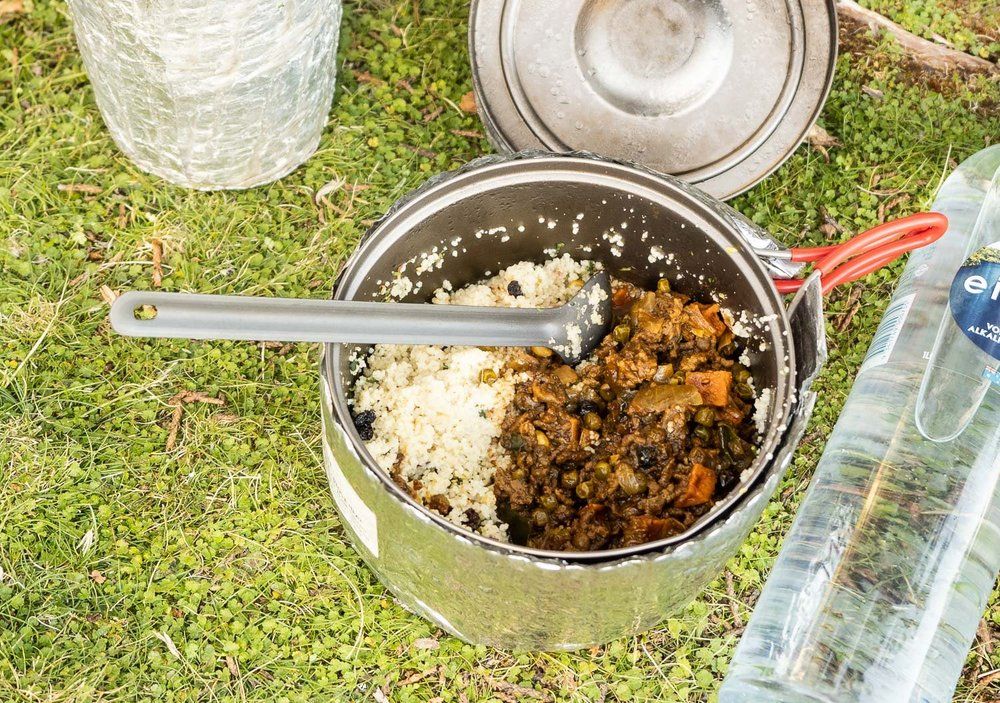
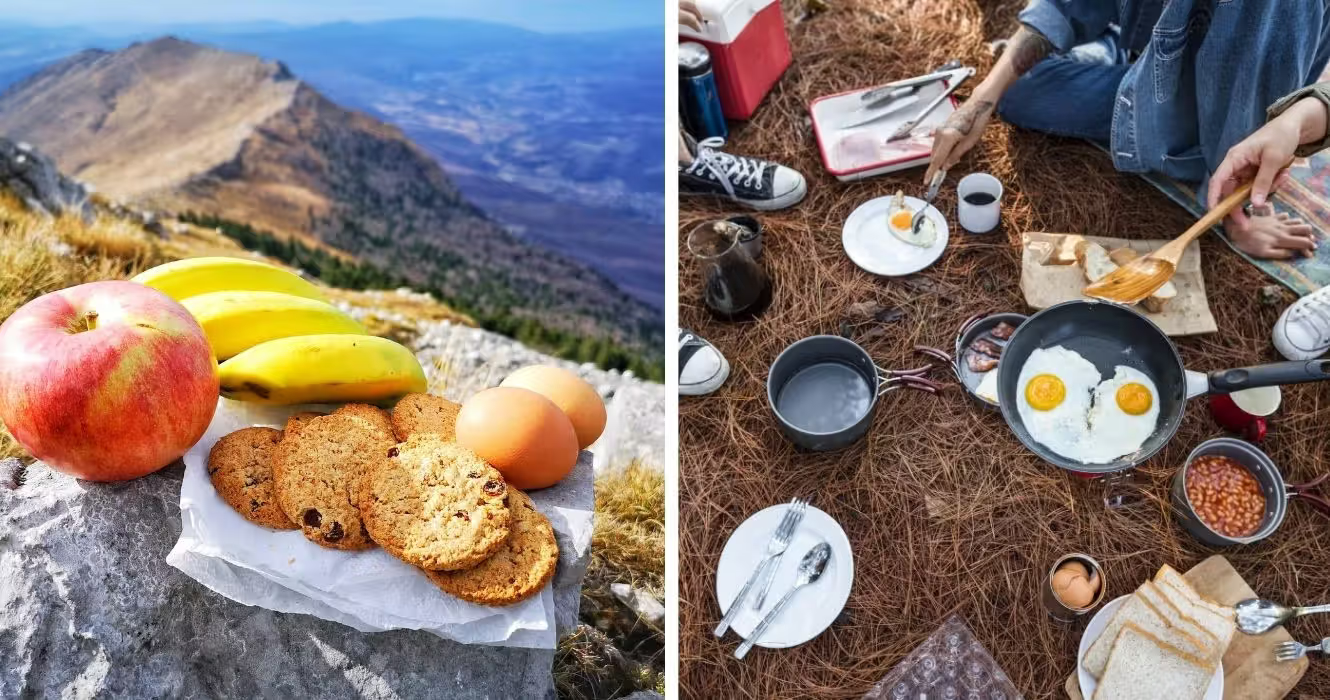
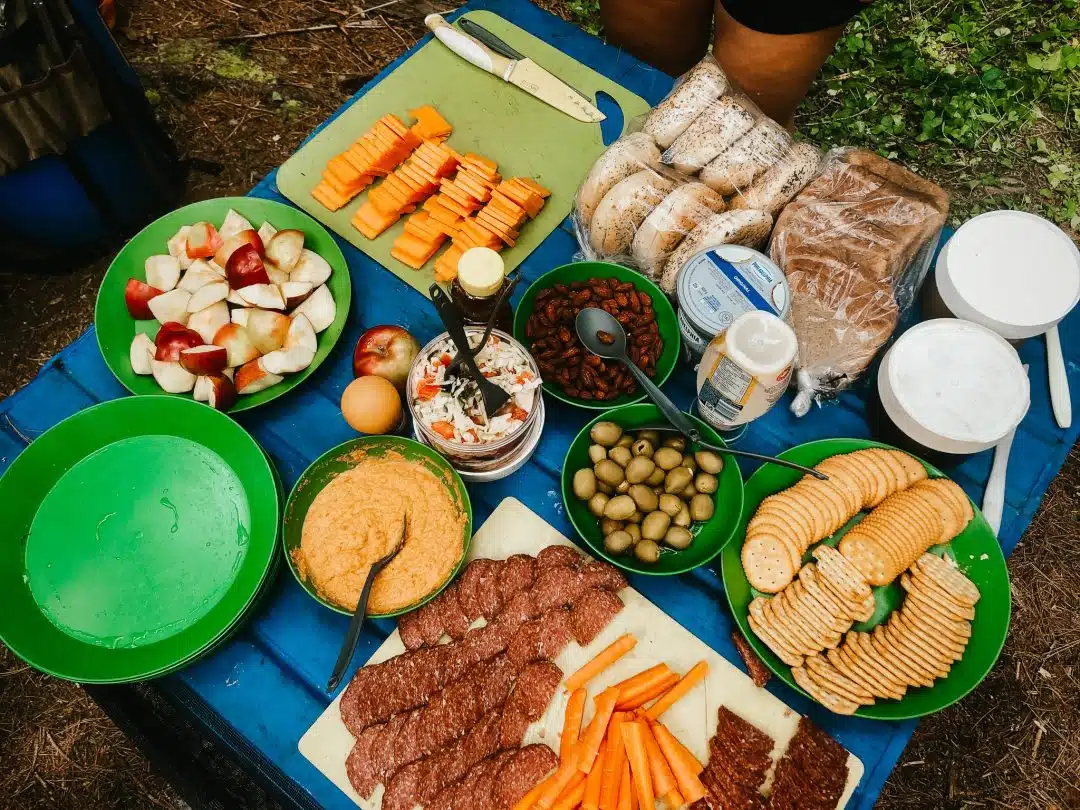
Top 5 Best Hiking Foods Ready to Go with You on Your Next Hiking Adventure:
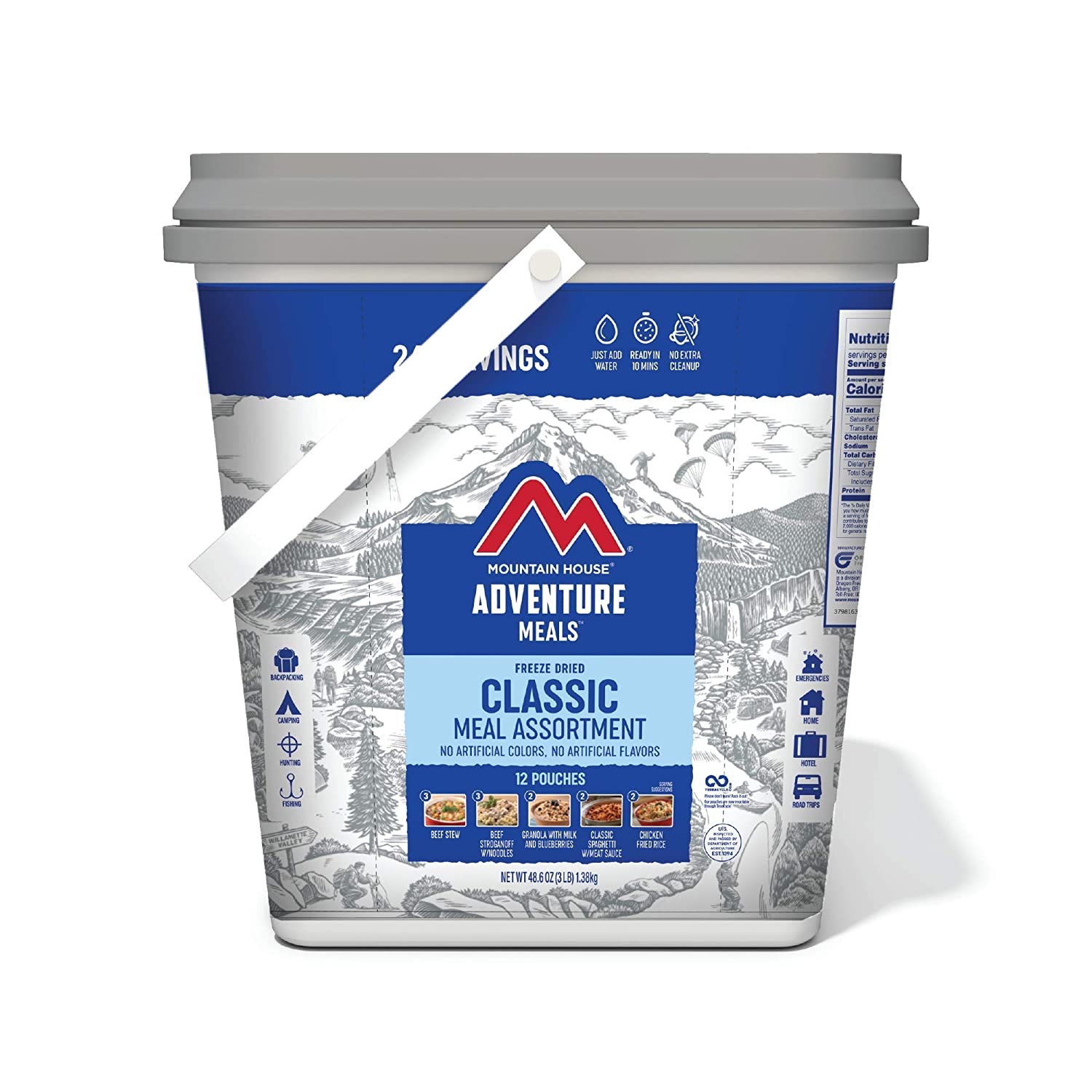
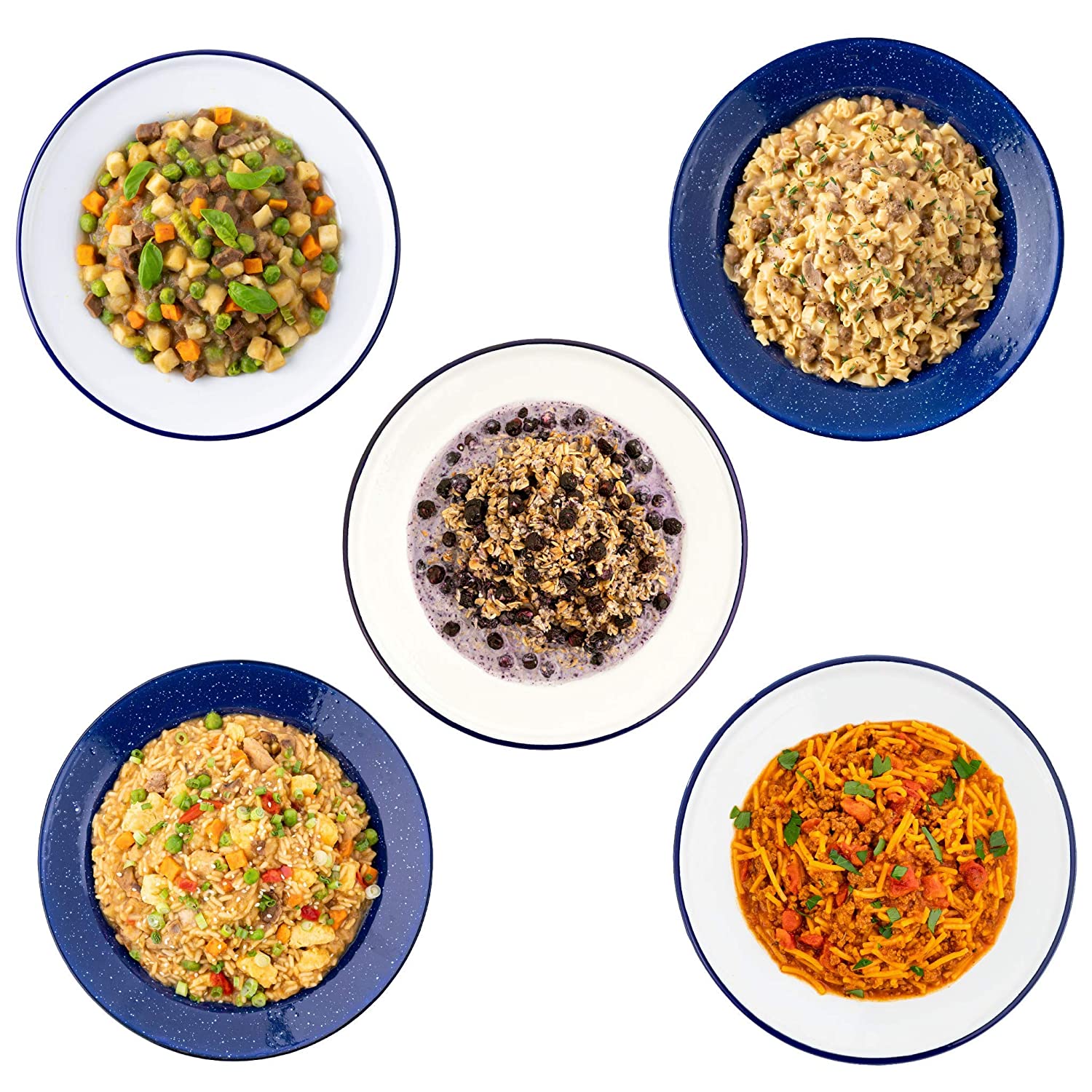
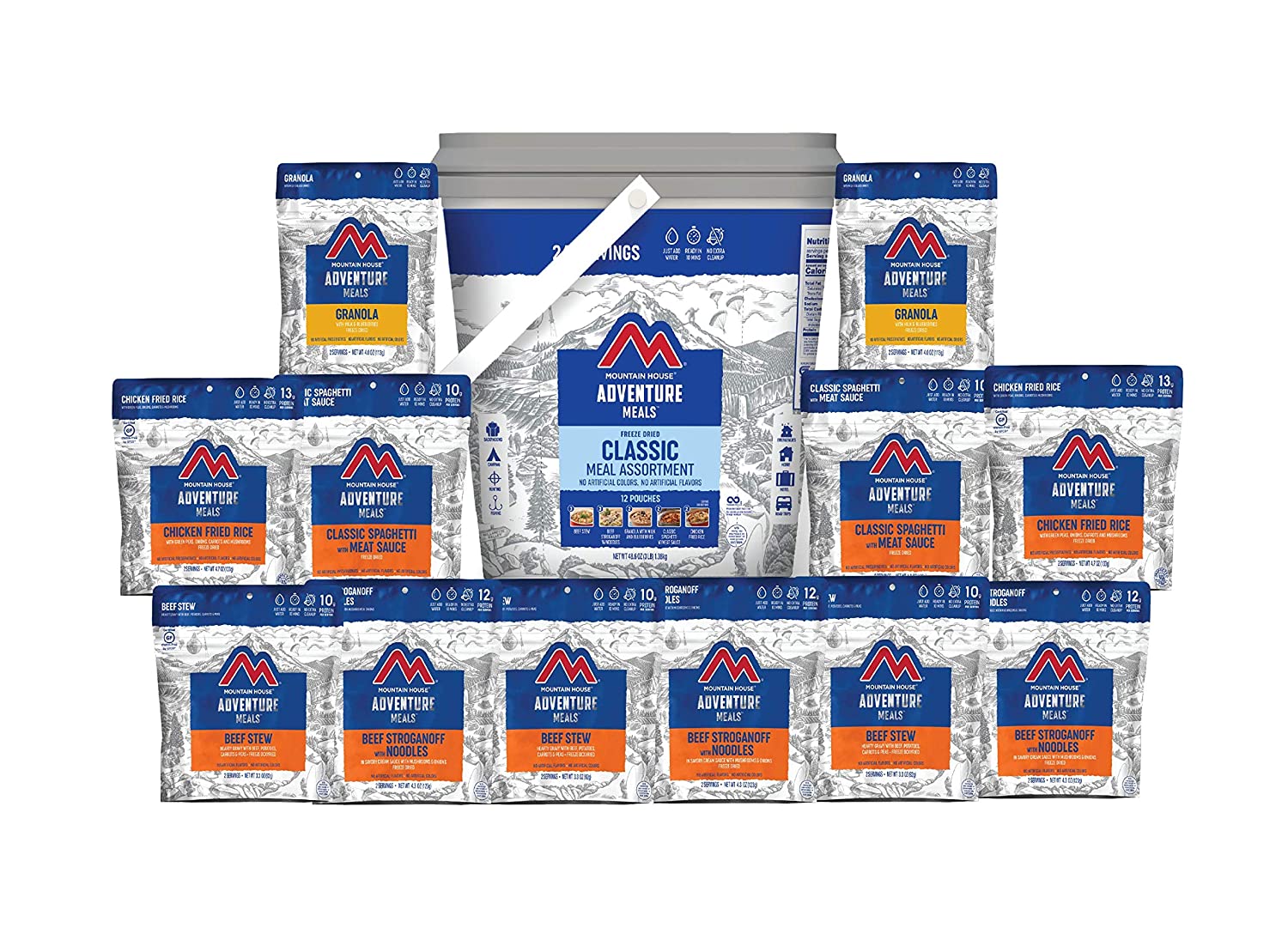
- Savor your next adventure with this easy-to-carry bucket consisting of 12 total meal pouches that are loaded with unbelievable flavor. This bucket contains 24 total servings of freeze-dried backpacker favorites.
- Meals included are (3) pouches of Beef Stew, (3) Beef Stroganoff, (2) Granola with Milk & Blueberries, (2) Classic Spaghetti with Meat Sauce, and (2) Chicken Fried Rice.
- Just add hot water to the pouch & eat in less than 10 minutes, with no cleanup. This pouch is wider and shorter, providing a great bowl-like experience. To prepare all meals in this bucket, 18 cups of water will be needed.
- Meals are freeze-dried to lock in nutrients & freshness and reduce weight. Enjoy in the backcountry or on your next camping trip.
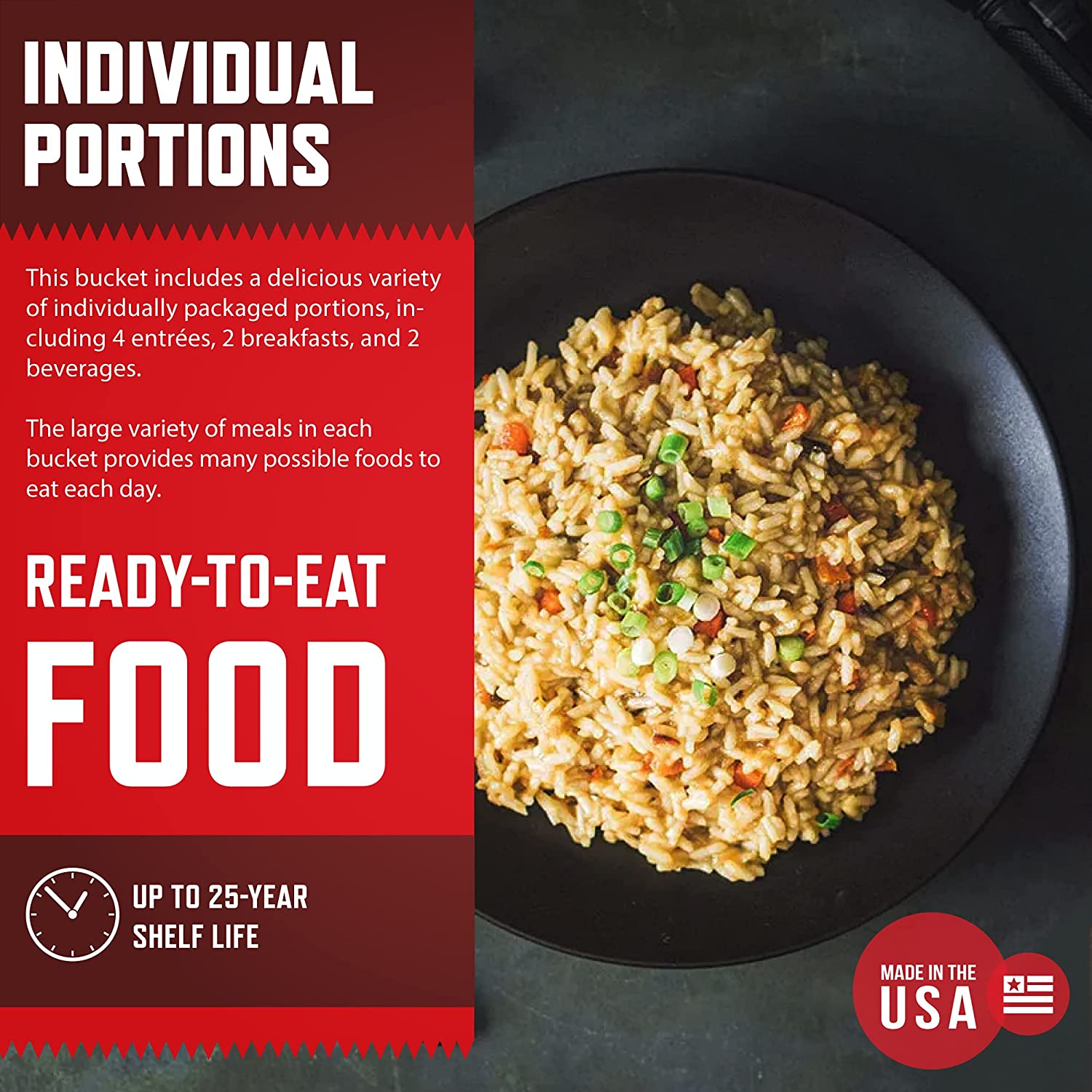
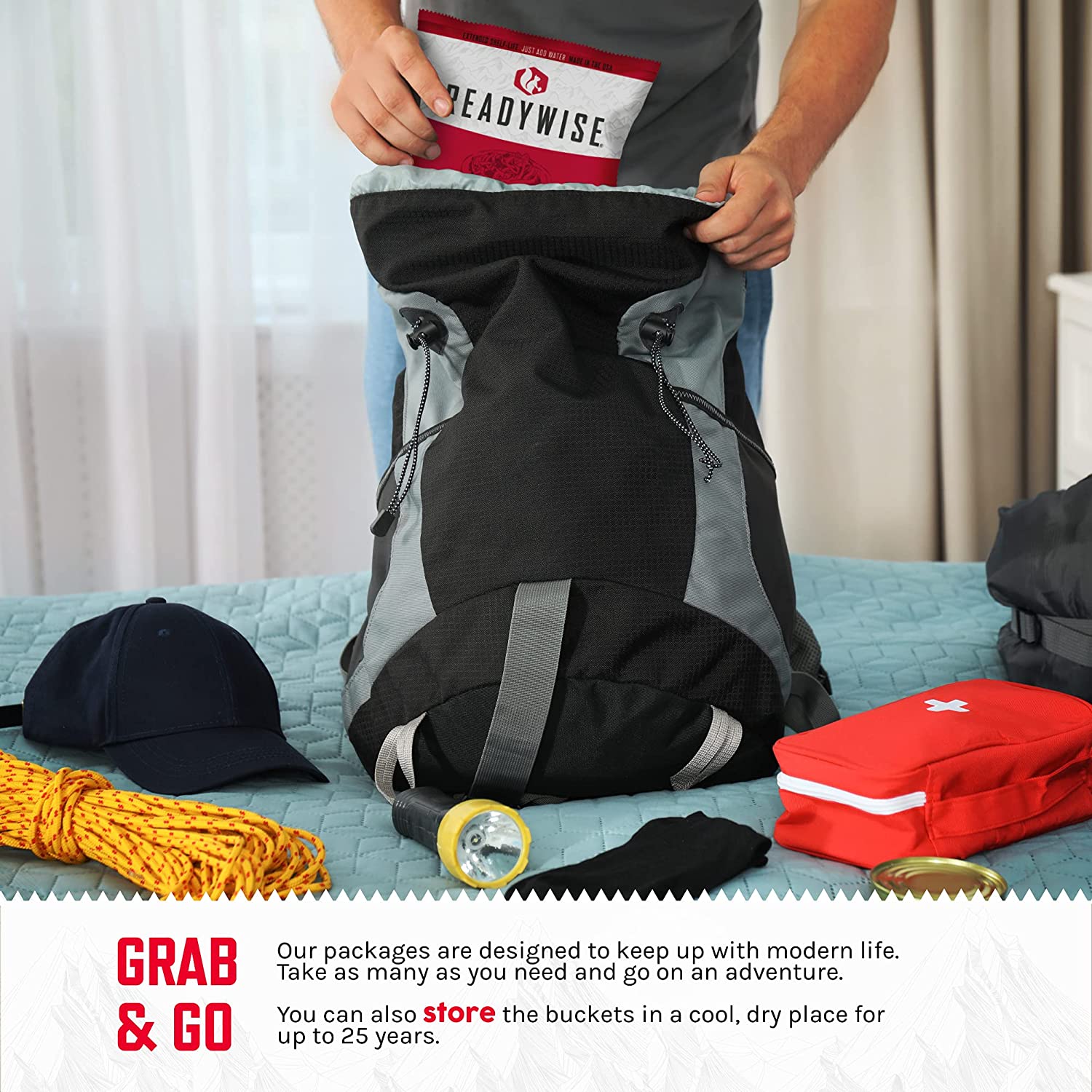
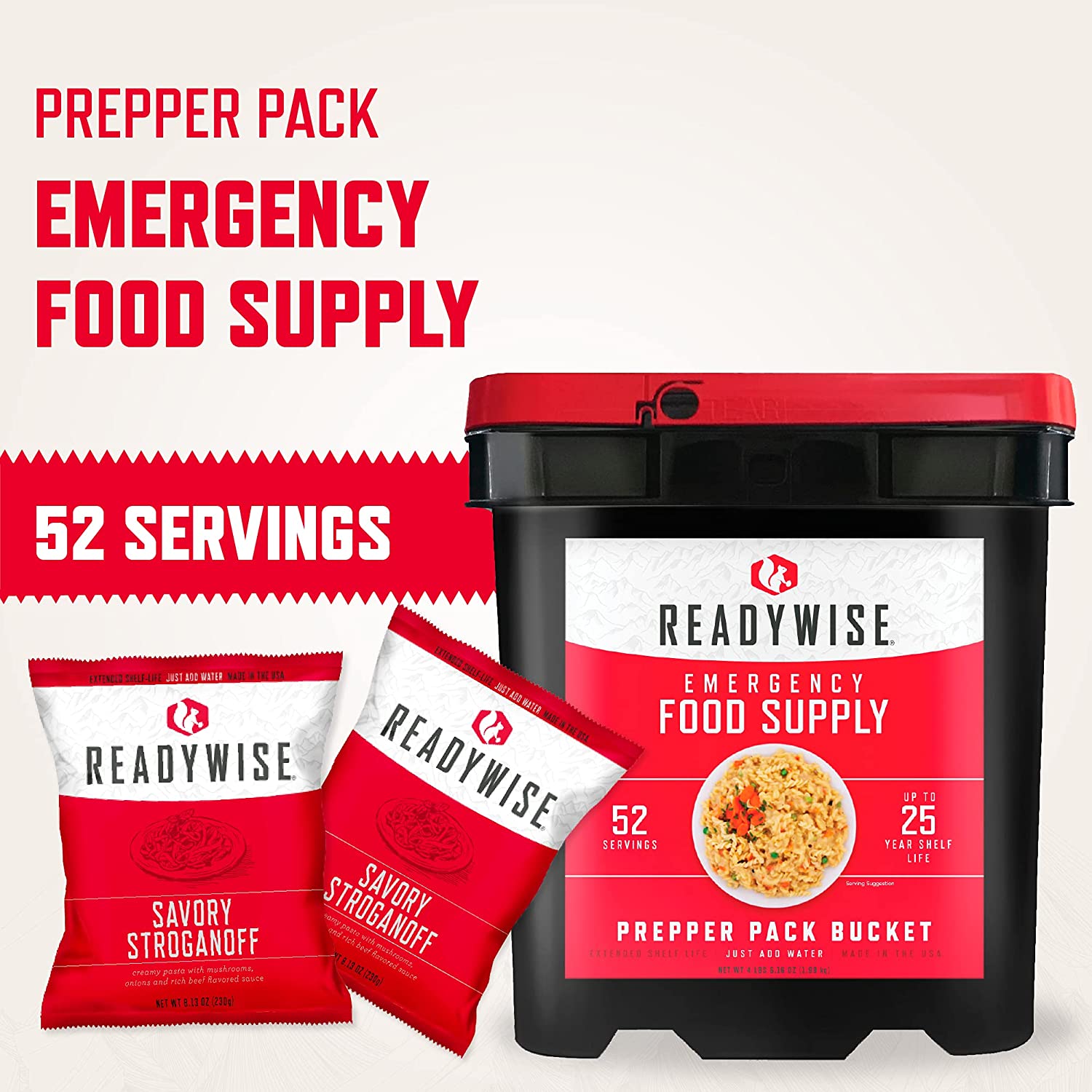
- Each bucket contains 52 total servings of 4 meals, 2 breakfasts, and 2 drinks.
- AReadyWise Food leadS the food industry when it comes to emergency preparedness.
- Made from a combination of freeze-dried and dehydrated ingredients, each of the entrées tastes great while also providing the calories and protein your body needs for survival. The food retains its original flavor, shape, color, and nutritional value while taking up less space
- The innovative process doesn’t require hot water to rehydrate the meal. Even if the power is out or you’re stuck on the mountain overnight, all you need is one cup of water of any temperature to rehydrate and enjoy a filling entrée.
- The rations are sealed using an ultra-high-barrier film, which is designed to provide optimum protection for oxygen- and moisture-sensitive products with long shelf-life requirements.
- That means your emergency rations can last up to 25 years. Each freeze-dried drink and entrée variety bucket contains 52 total servings of 4 meals, 2 breakfasts, and 2 drinks.
- Whether you’re stocking emergency-preparedness supplies or looking for quality backpacking food, ReadyWise meals are easy, nutritious, and ready to go when you need them.
3. Freeze Dried Backpacking and Camping Meals Peak Refuel Breakfast Skillet
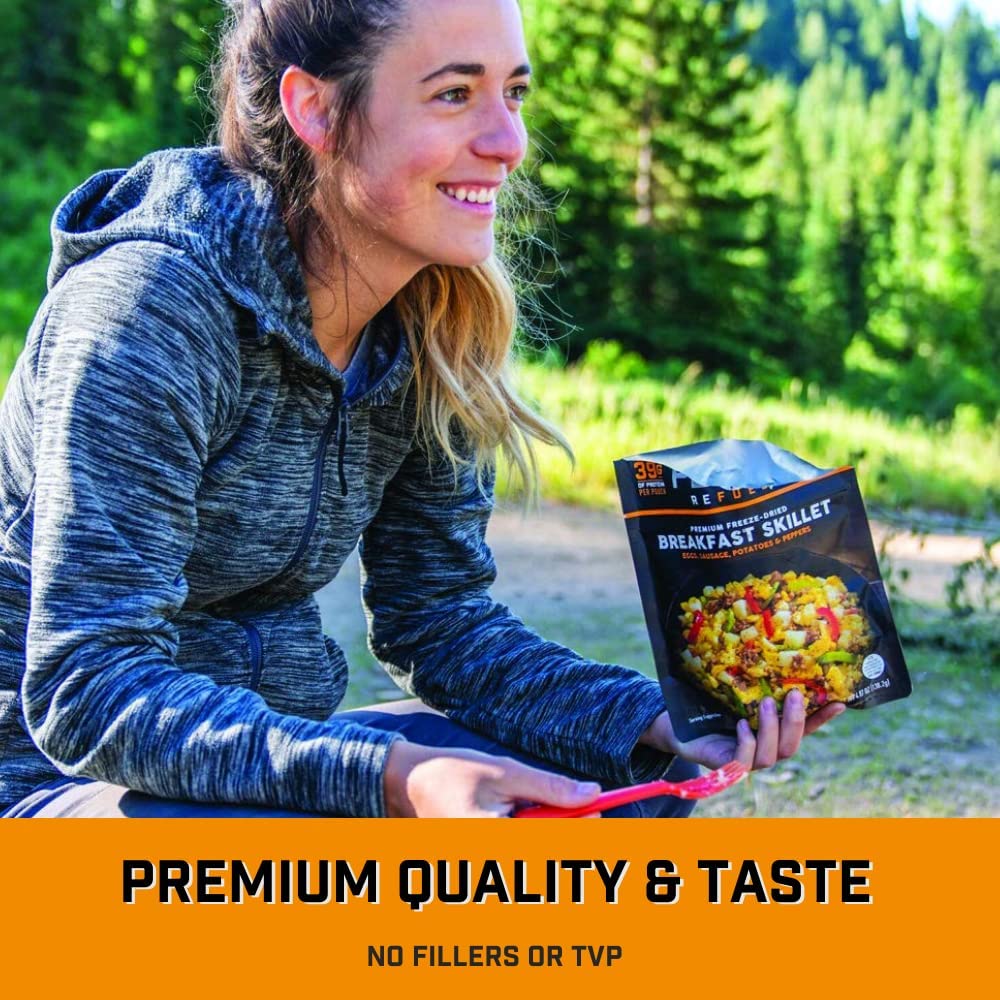
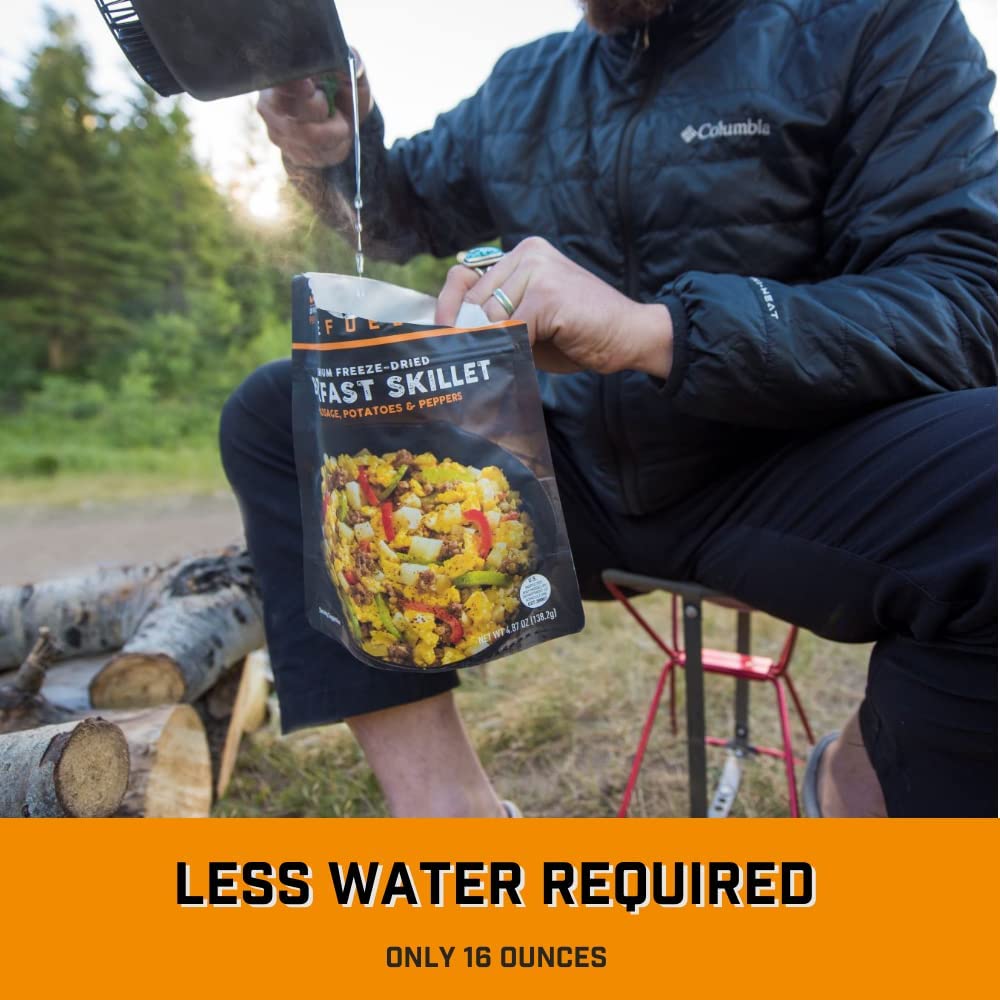
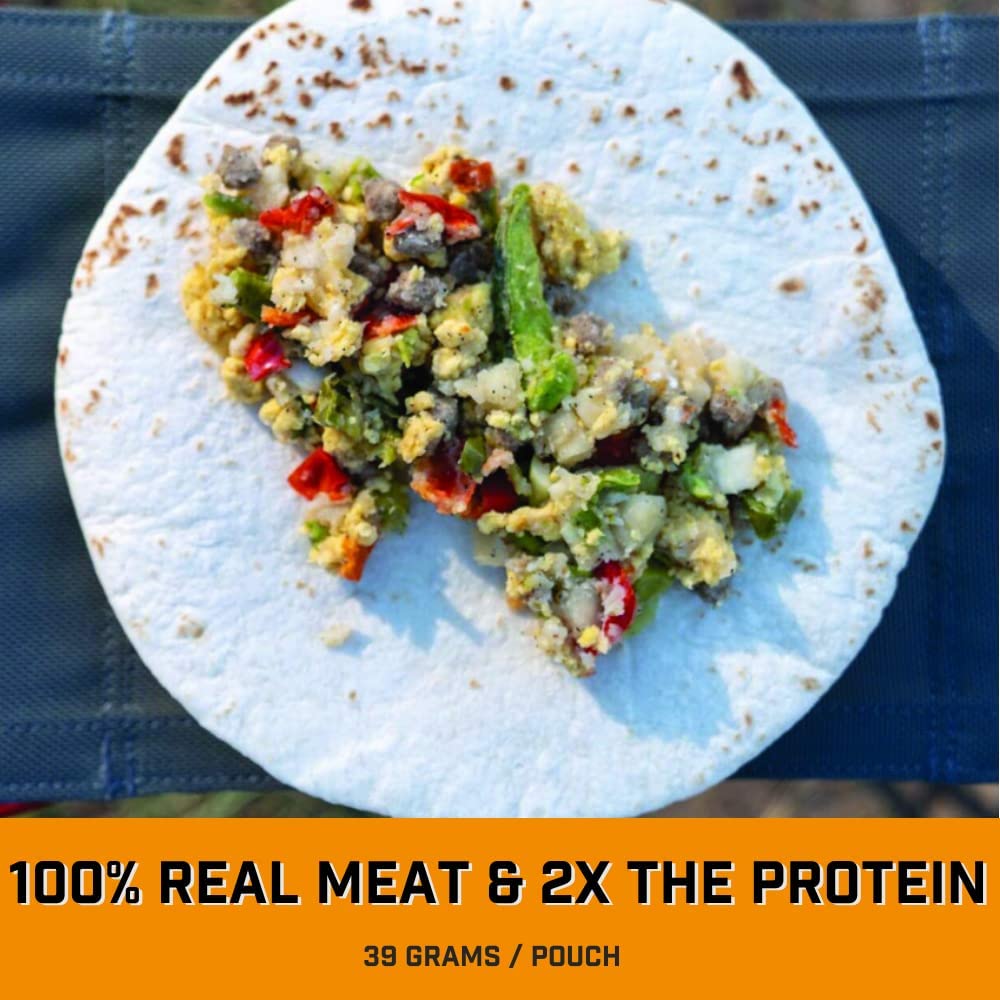
- If you wouldn’t eat it at home, why take it into nature? What you eat matters and we have gone to great lengths to create a flavorful just-add-water backpacking meal for whatever adventure you are on, whether on the mountain or at your favorite campsite.
- Peak Refuel will never use TVP or any other filler in the meat we use. These meals will always contain 100% USDA-inspected meat with nearly double the amount of protein per serving than most outdoor meals on the market.
- The meals are premium freeze-dried which locks in important nutrients, so your meal maintains its natural texture and flavor, andtastes as it came straight from your house. Sourced with the highest quality, non-GMO ingredients. Never any junk or artificial preservatives.
- Peak Refuel prepared meals are lightweight, require less water to cook or rehydrate, and are ready to eat in 10 minutes or less.
- MADE IN THE USA – All Peak Refuel meals are freeze-dried and packaged in the USA.
4. The Backpacking Kit - 18Ct Premium Lightweight Meals in 1 Cup Resealable Pouches
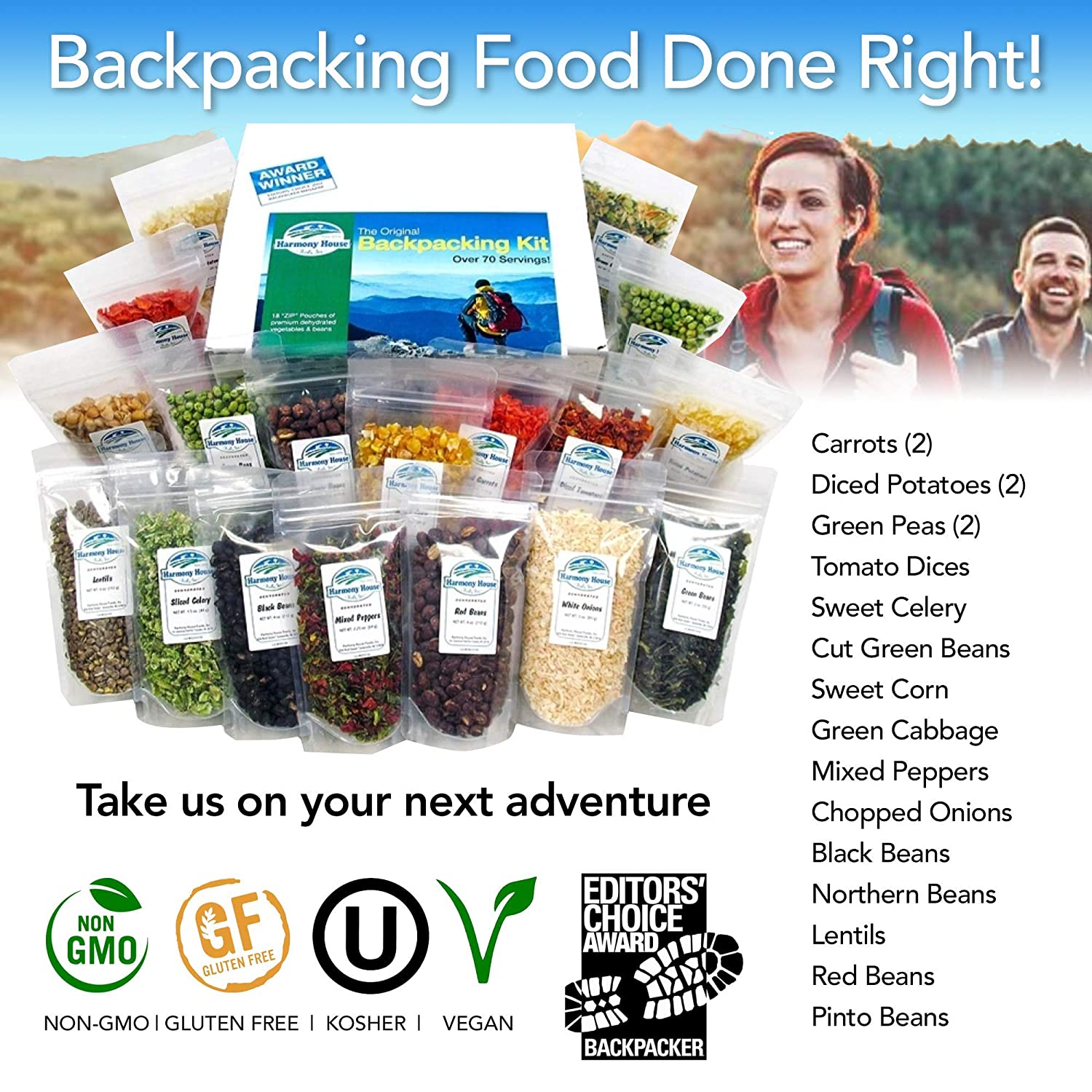
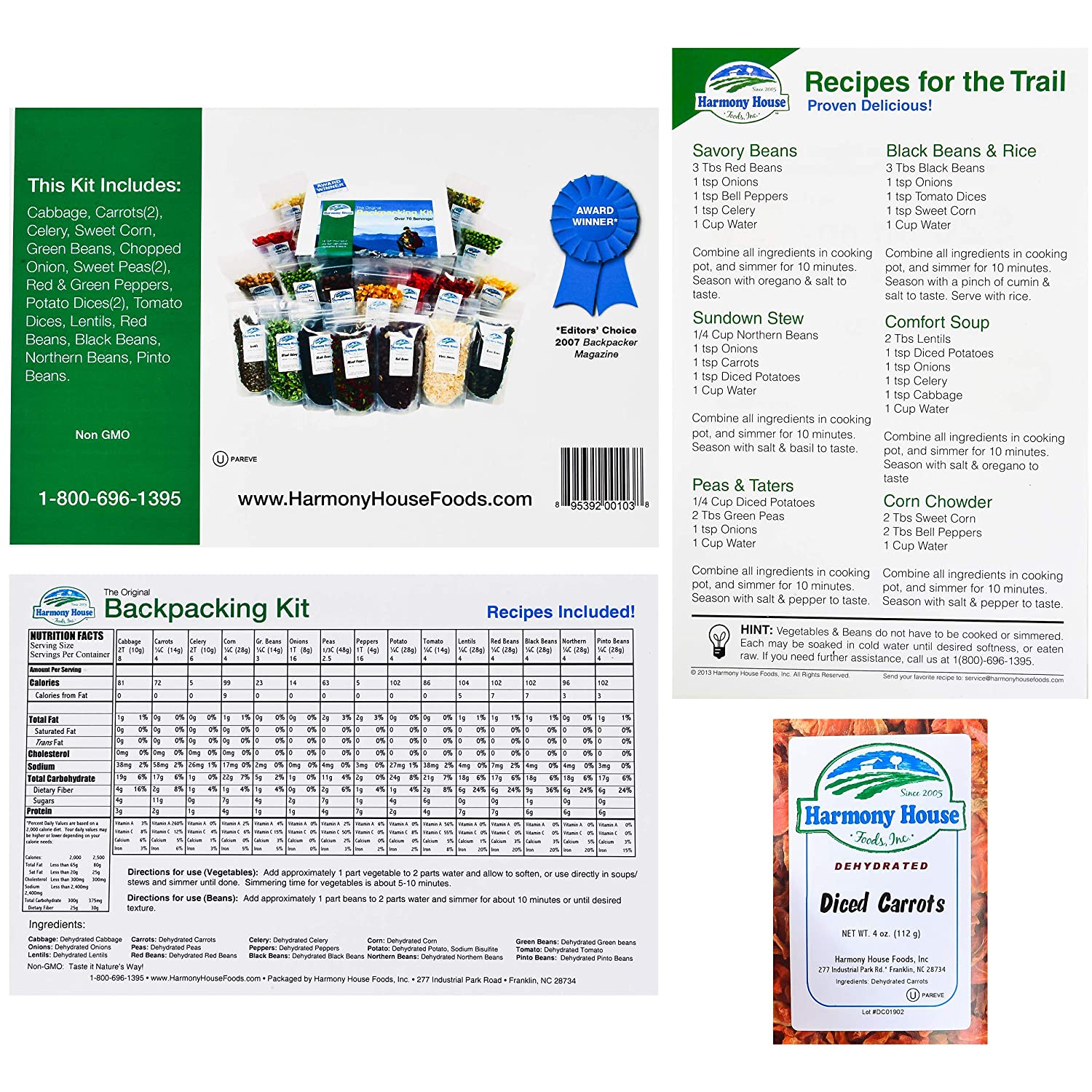
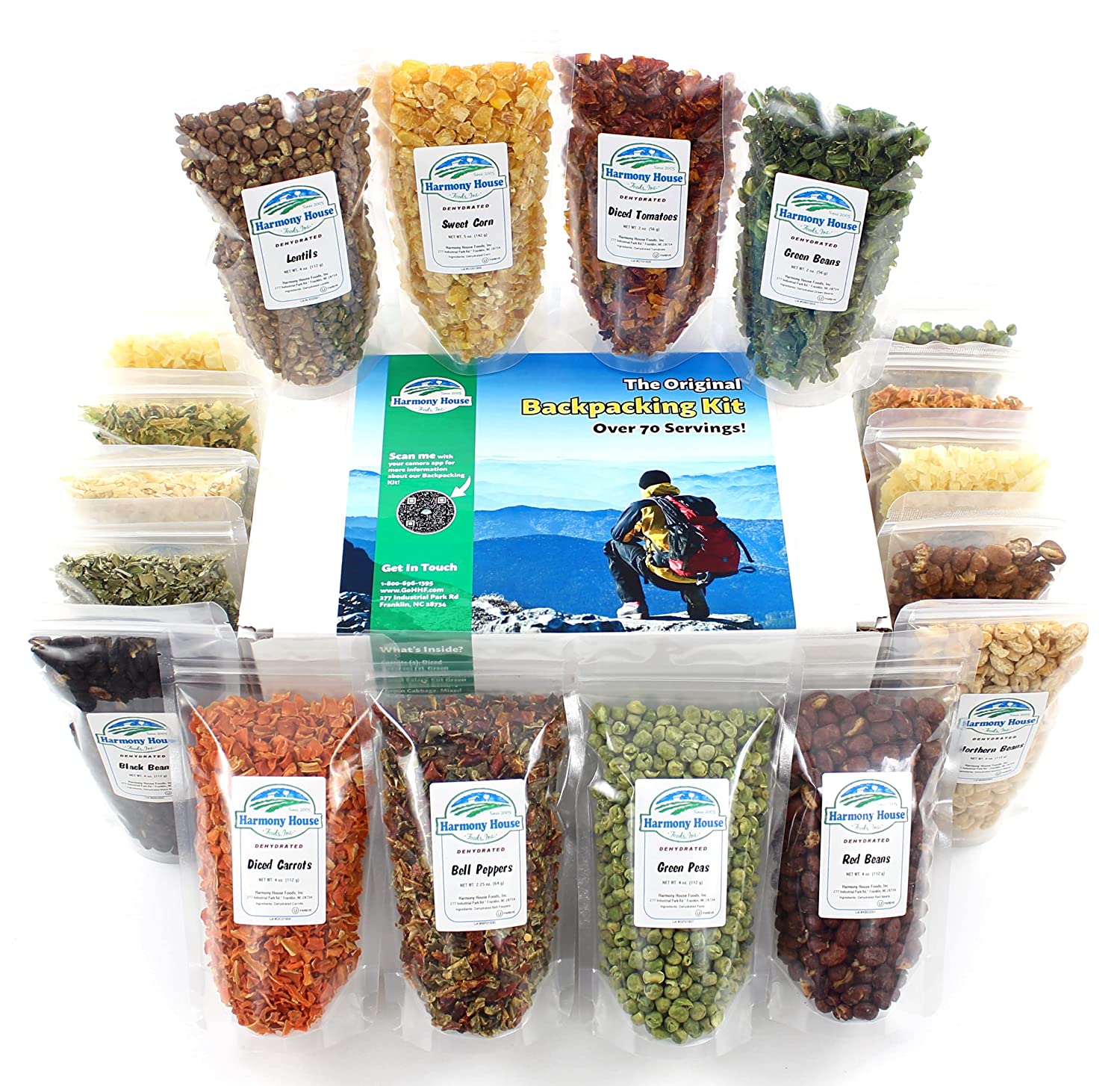
- When it comes to packing for your backcountry adventure, lighter is better. Gone are the days of lugging heavy cans and boxes of food. Food is one of the biggest challenges faced on the trail, especially during a long backpacking adventure.
- A great deal of time and energy go into planning how much and what kind of foods to load into your pack. Furthermore, you have to consider how you will prepare your backpacking meals.
- To reduce this burden, Harmony house has prioritized making the most delicious, healthy, convenient, and lightweight hiking, camping, and backpacking food on the market.
- Carrots, potatoes, green peas, tomatoes
- Celery, green beans, sweet corn, green cabbage
- Red and green peppers, onions, black beans, northern beans
- Red beans, pinto beans, and lentils
5. StarKist Lunch To-Go Chunk Light Pouch
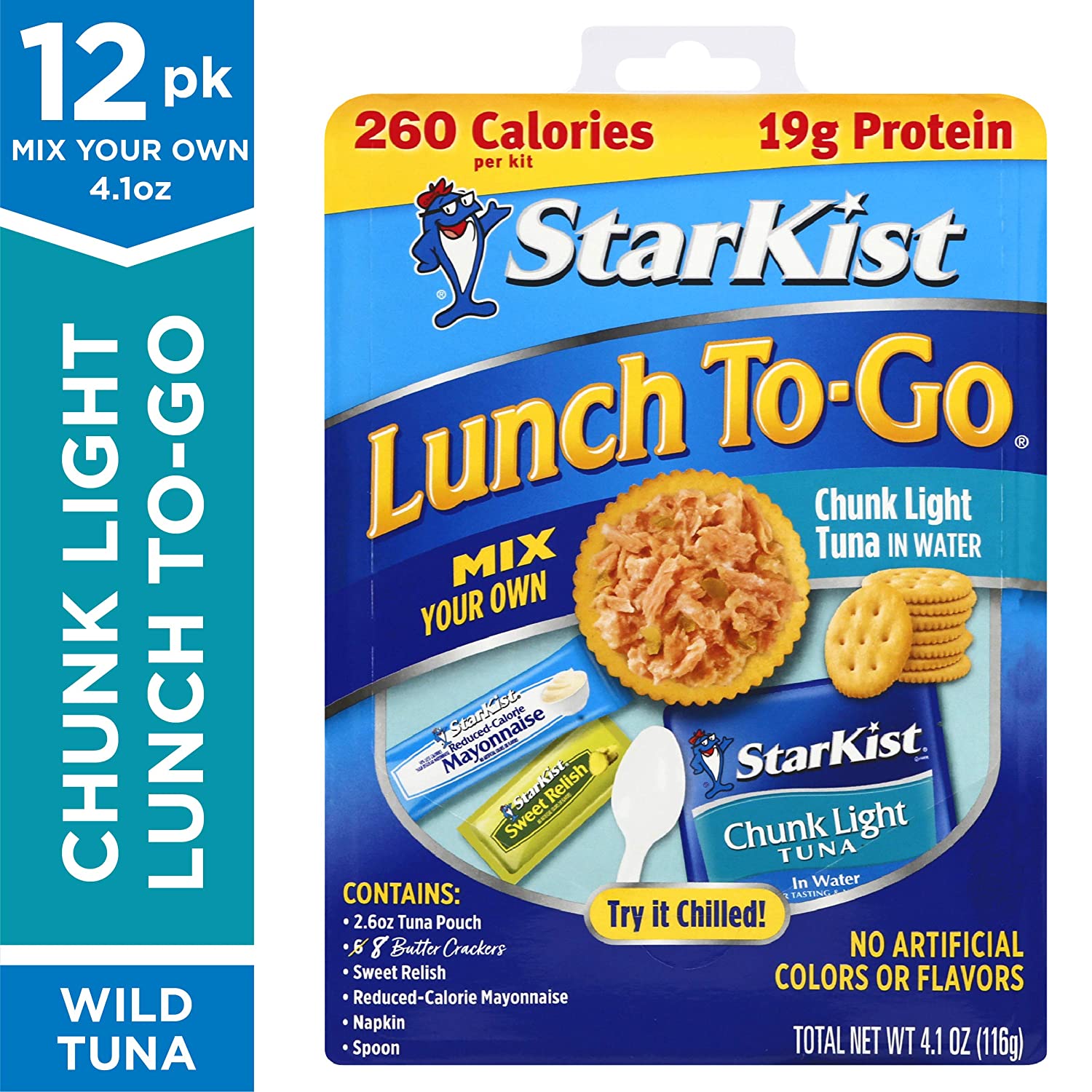
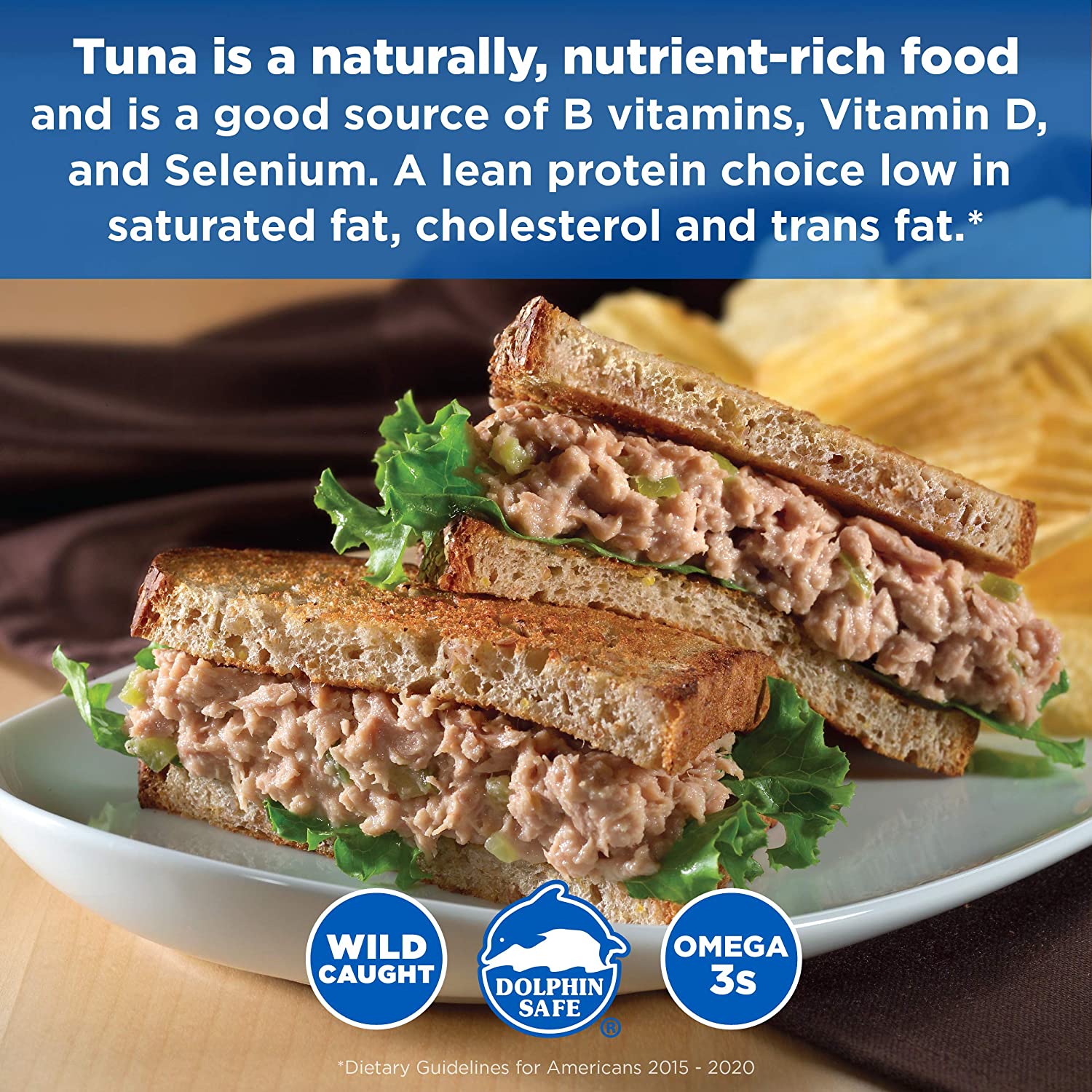
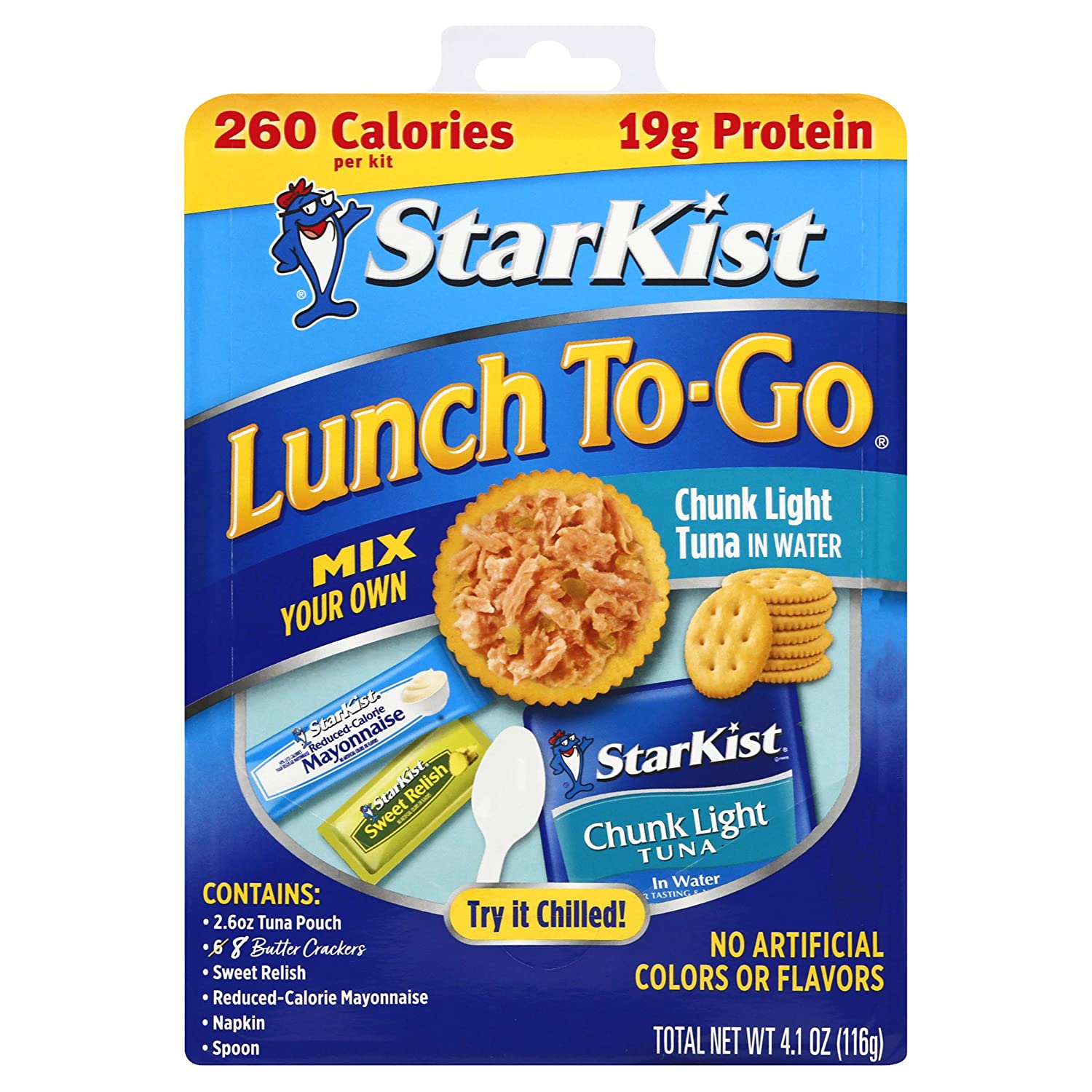
The convenience and fresh taste of the Lunch To-Go Chunk Light Mix Your Own Tuna Salad with all of the fixings for a delicious tuna salad made the way you like it.
Most FAQs about Backpacking Foods:
What is the Best Energy Food for Hiking?
Hiking is an incredibly physically and mentally strenuous activity, so it's important to have the right kind of fuel in your system to keep you going. The best energy food for hiking depends largely on what kind of hike you're doing and how long you'll be out, but some great options include low-fat protein snacks like nuts and trail mix;
Complex carbohydrates such as whole wheat crackers or granola; fruits like apples, oranges or pears; nut butter (almond butter is a fan favorite); dried fruit; unsweetened yogurt; hummus with veggies or crackers; energy bars with minimal added sugar and simple ingredients like oats, nuts, and seeds.
For longer hikes, having a selection of high-energy foods will help you maintain energy levels throughout the day. Just remember not to overload your stomach with too much at once – eat small portions every 30 minutes while stopping to rest periodically.
If weight isn't an issue for you, carry along some ready-made meals such as sandwiches or wraps filled with nutrient-dense ingredients like avocado and egg. Keeping yourself well-hydrated throughout the journey is also essential!
Are Dehydrated Foods Good for Hiking?
Absolutely! Dehydrated foods are great for hiking, as they take up less space than fresh foods and require fewer supplies to prepare. Dehydrated meals are lightweight, not easily broken or crushed in a backpack, and don’t require constant refrigeration.
Dehydrated food requires less energy to digest due to its reduced water content as compared to fresh produce and meats. Not only do hikers benefit from the additional space and lower weight of their food supply, but dehydration also eliminates spoilage associated with certain types of items namely fruits and vegetables that can quickly rot in high temperatures.
Just be sure to bring enough water on your hikes so you can rehydrate your dried food! Dehydration does reduce the water content substantially of some foods but still need a little bit more hydration before it is ready for consumption.
To make sure you get enough nutrition during a long hike consider adding in some other lightweight snacks such as trail mix or nuts; they contain healthy fats that will help maintain your energy levels throughout the entire journey!
How Much Food Do I Need for 7 Days of Hiking?
When it comes to planning out your food needs for a 7-day hiking trip, you'll want to plan conservatively. Depending on the intensity of your hike, seven days can require anywhere from 5-15 lbs of food in total.
For breakfast, each day, try carrying about 1/4 lb of high-calorie foods like hard cheeses, trail mix, or jerky - enough for four 400-calorie meals. For lunch and dinner, each day aim for 600 calories per meal plus snacks throughout the day.
Try packing up plenty of energy-dense snacks such as nuts, granola bars or dried fruit; beef jerky; tuna packets; and other protein sources like peanut butter or nut butter. You'll also want to make sure you get plenty of electrolytes too – such as sports drinks and electrolyte tablets - because sweat will cause dehydration over time.
If you're wondering how much water to bring along with you on your hike: It's recommended that people drink an average of two liters (about a half gallon) per person per day while hiking in temperate climates – more if it is particularly hot and humid where you are going.
Make sure to consider how heavy all this water is when calculating how much weight your pack has though! A good rule of thumb is that all the food and water needed should never exceed 25% of one’s body weight – if possible! Good luck with your 7-day hike adventure!
Conclusion
When it comes to packing for a week of hiking or backpacking, the key is to choose foods that provide the right balance of macronutrients, carbs, proteins, and healthy fats. Nuts, seeds, whole-grain crackers, dehydrated foods, instant oatmeal, and fresh fruits and vegetables are excellent choices.
These foods are nutrient-dense, calorie-dense, and lightweight, making them ideal for long hikes. With the right foods in your pack, you can fuel your body, stay energized, and make the most of your adventure.
Happy Hiking!
Check Out Our Relevant Reads!
